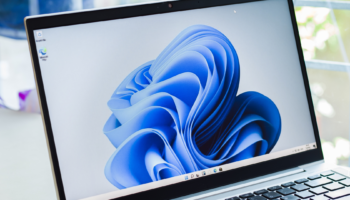Amazon‘s proposal to acquire leading robot vacuum producer iRobot has faltered due to EU regulatory pressure, forcing the Roomba maker to significantly reduce its R&D spending and personnel. And this could have serious consequences for home robots in the future.
The proposed $1.7 billion acquisition was first reported in August 2022, but in November 2023, the European Commission expressed its concerns about the deal in a news release, warning that it “may restrict competition in the market for robot vacuum cleaners”.
Well, those objections have finally brought the takeover down, with Amazon and iRobot issuing a joint statement expressing their regret in no uncertain terms. Amazon, in particular, is enraged with the EU authorities, claiming that “undue and disproportionate administrative obstacles discourage entrepreneurs” and “harms both consumers and competition”.
While iRobot’s competitors in the battle to produce the greatest robot vacuum may disagree, the implications for the Roomba manufacturer look to be enormous. In a separate statement, iRobot outlined how it intends to continue as an independent firm, including reducing R&D spending by $20 million per year and laying off more than 30% of its employees.
The company also intends to halt “all work related to non-floorcare innovations, including air purification, robotic lawn mowing, and education”. Naturally, Amazon points out that “this outcome will deny consumers faster innovation and more competitive prices, which we’re confident would have made their lives easier and more enjoyable” .
While it is too early to say definitively how this takeover collapse will affect iRobot and Amazon’s smart home plans, early indications suggest that it may limit iRobot’s ambitions in the medium term, particularly outside of its core robot vacuum army.
Analysis: Where will iRobot go next?

If you own a robot vacuum, such as the iRobot Roomba Combo J7 Plus, which is now ranked first overall in our best robot vacuums list, the takeover collapse will have no immediate impact. Despite a significant reorganization, iRobot will continue to produce thoughtful robots and intelligent home breakthroughs without Amazon.
But the bigger concern, and the greater uncertainty, is how this will affect robot vacuums and home robotics in the future. iRobot has been making robo-vacs like the Roomba series for over 20 years, starting back in 2002. Since then, its product line has expanded dramatically, including gutter cleaners and robo-mops.
If you own a robot vacuum, such as the iRobot Roomba Combo J7 Plus, which is now ranked first overall in our best robot vacuums list, the takeover collapse will have no immediate impact. Despite a significant reorganization, iRobot will continue to produce thoughtful robots and intelligent home breakthroughs without Amazon.
But the bigger concern, and the greater uncertainty, is how this will affect robot vacuums and home robotics in the future. iRobot has been producing robo-vacs like the Roomba series for almost 20 years, beginning in 2002. Since then, its product line has expanded dramatically, including gutter cleaners and robo-mops the demise of the deal after 33 years is a positive sign for its future.
Angle stated in a LinkedIn post that he will remain a “senior advisor” to iRobot, that “the consumer robot industry is on the cusp of innovation and growth” and that “iRobot has an exciting future ahead of it”. We’ll have to wait and see if the latter is true, but the robo-vacuum world has certainly changed today.






